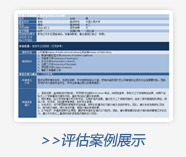Alex:在北京13号地铁上经历
这篇文书是Alex以外国人的视角写下的在北京13号线上的经历,整篇文书其实是关于“外国人”身份认同的话题。
文中不仅运用了中文,展示了他的语言能力,并且在论述中,展示了他极高的人文素养和阅读积累。
完整文书展示:

I entered the surprisingly cool car. Since when is Beijing Line 13 air-conditioned? I’ll take it. At four o’clock in the afternoon only about twenty people were in the subway car. “At least it’s not crowded,” one might have thought. Wrong. The pressure of their eyes on me filled the car and smothered me. “看看!她是外国人!”(Look, look! She’s a foreigner!) An old man very loudly whispered to a child curled up in his lap. “Foreigner,” he called me. I hate that word, “foreigner.” It only explains my exterior. If only they could look inside.…
They would know that I actually speak Chinese—not just speak, but love. They would know that this love was born from my first love of Latin—the language that fostered my admiration of all languages. Latin lives in the words we speak around the world today. And translating this ancient language is like watching a play and performing in it at the same time. Each word is an adventure, and on the journey through Virgil’s Aeneid I found that I am more like Aeneas than any living, dead, or fictional hero I know. We share the intrinsic value of loyalty to friends, family, and society. We stand true to our own word, and we uphold others to theirs. Like Aeneas’s trek to find a new settlement for his collapsed Troy, with similar perseverance I, too, wander the seas for my own place in the world. Language has helped me do that.
If these subway passengers understood me, they would know that the very reason I sat beside them was because of Latin. Even before Aeneas and his tale, I met Caecilius and Grumio, characters in my first Latin textbook. In translations I learned grammar alongside Rome’s rich history. I realized how learning another language could expose me to other worlds and other people—something that has always excited me. I also realized that if I wanted to know more about the world and the people in it, I would have to learn a spoken language. Spanish, despite the seven years of study prior to Latin, did not stick with me. And the throatiness of French was not appealing. But Chinese, more than these other traditional languages, intrigued me. The doors to new worlds it could open seemed endless. Thus I chose Chinese.
If these subway passengers looked inside me, they would find that my knowledge of both Latin and Chinese makes me feel whole. It feels like the world of the past is flowing through me alongside the world of the future. Thanks to Latin, Chinese sticks in my mind like the Velcro on the little boy’s shoes in front of me. If this little boy and his family and friends could look inside, they would understand that Latin laid the foundation for my lifelong commitment to languages. Without words, thoughts and actions would be lost in the space between our ears. To them, I am a foreigner, “外国人” literally translated as “out-of-country person.” I feel, however, more like an advena, the Latin word for “foreigner,” translated as “(one who) comes to (this place).” I came to this place, and I came to this country to stay. Unfortunately, they will not know this until I speak. Then once I speak, the doors will open.
招生官点评:
Your college essay should serve two purposes: allow the reader to gain insights about you that they are not able to do in other parts of your application and provide an example of your writing abilities. To the former, you are hoping to demonstrate five soft skills that most colleges are at least implicitly interested in gleaning, those that indicate your capacity to be a good student at their institution.
Alex arrives at both goals in an interesting way. Without seeing the rest of her application, I can only assume that she is possibly interested in pursuing a major in a language (if she is pursuing a major in an applied math, this essay would be extremely interesting) and she has likely participated in some kind of team sport to demonstrate the soft skill of teamwork. To be honest, as someone who speaks five languages myself and studied Latin in undergrad, I don’t necessarily agree with her assessment of the languages. BUT I’m interested. I want to keep reading. She isn’t supposed to get everything right in this essay; she’s supposed to demonstrate a capacity for learning. And she does that.
I want to keep reading because there is something she is saying about her identity--be it performative or actual--that I am curious about. With our work in college access and admissions, we’ve only worked in underserved communities, be they students of color or girls interested in STEM or first-generation college students or more. People make an assumption that we are exploiting these identities into sob stories that admissions readers will immediately hang on to. We’re not doing that. We are encouraging students to write about something similar to what Alex did—describe how your identity has created a learning opportunity or a moment of resilience or determination. Alex seems like someone who is well resourced: her access to certain text; language curricula and the amount of time she spent studying those languages; even her sentence structure, gives that away. But her openness to adapt with humility is a critical skill that is so necessary to be a great student, and unfortunately a skill that many students miss.
For the second goal, she does a tremendous job of demonstrating her writing abilities. Her sentence structures are varied and there aren’t egregious mistakes in grammar and spelling. The last two sentences of the second paragraph sold me on her skill-level and personhood. I also really appreciated that she wasn’t shying away from what she has been able to access as far as her schooling. Alex is smart, witty, and well-traveled, and you’re going to know it. I love that.
The essay works as an introduction to who she is and her soft skills, as well as a demonstration of her writing abilities.
你的大学文书应该有两个目的:一是让读者了解你;二是证明你的写作能力。
Alex以一种有趣的方式实现了两个目标。她表现出了学习的能力,不放过任何一个学习的机会;同时展现了她的写作能力,句子结构多种多样,语法和拼写上没有严重错误。
免费留学评估




